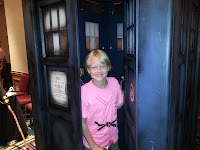My son has become a fan of the Halo game. He plays it as much as we allow. Since the Xbox is our primary form for entertainment - with Hulu, Netflix, and Amazon Prime - we have to kick him off fairly often.
He's also a fan of the Eragon books. He's reading, or claims to be reading, a thick one with a green dragon on the cover. He likes dragons. Part of the reason could be my unused D&D collection that serves as a dust attractor.
So recently I asked him if he'd like for me to write a story for him. He replied that he wanted one about Halo soldiers fighting dragons. Seemed right up my alley so I started a short story that I hope to complete soon.
Here's the first few paragraphs.
He's also a fan of the Eragon books. He's reading, or claims to be reading, a thick one with a green dragon on the cover. He likes dragons. Part of the reason could be my unused D&D collection that serves as a dust attractor.
So recently I asked him if he'd like for me to write a story for him. He replied that he wanted one about Halo soldiers fighting dragons. Seemed right up my alley so I started a short story that I hope to complete soon.
Here's the first few paragraphs.
My name is Sergeant Augustin Xavier Montpellier. For you folks that don't speak Old Earth French, that last name is pronounced Mont-pe-lay. Yes, I know it has an ‘R’ at the end. Think of it like someone’s ugly baby. You see it. You just don’t say it.Most people call me Sarge. I’m a Spartan with the Void Hammers. For you Old Worlders not familiar with New Space lingo, Spartan is another word for mercenary. I get paid take care of problems.





















